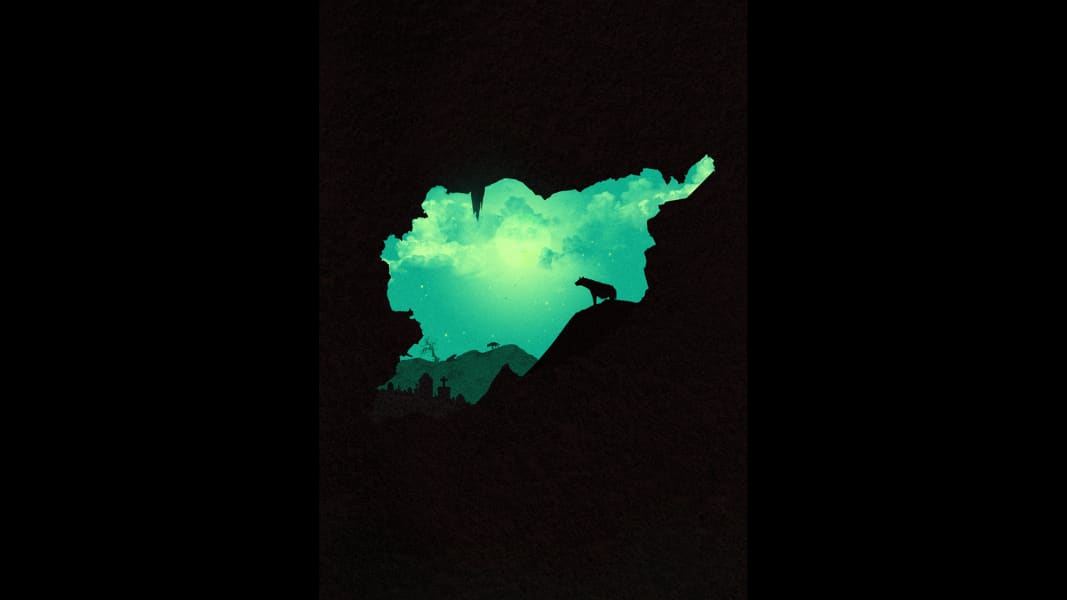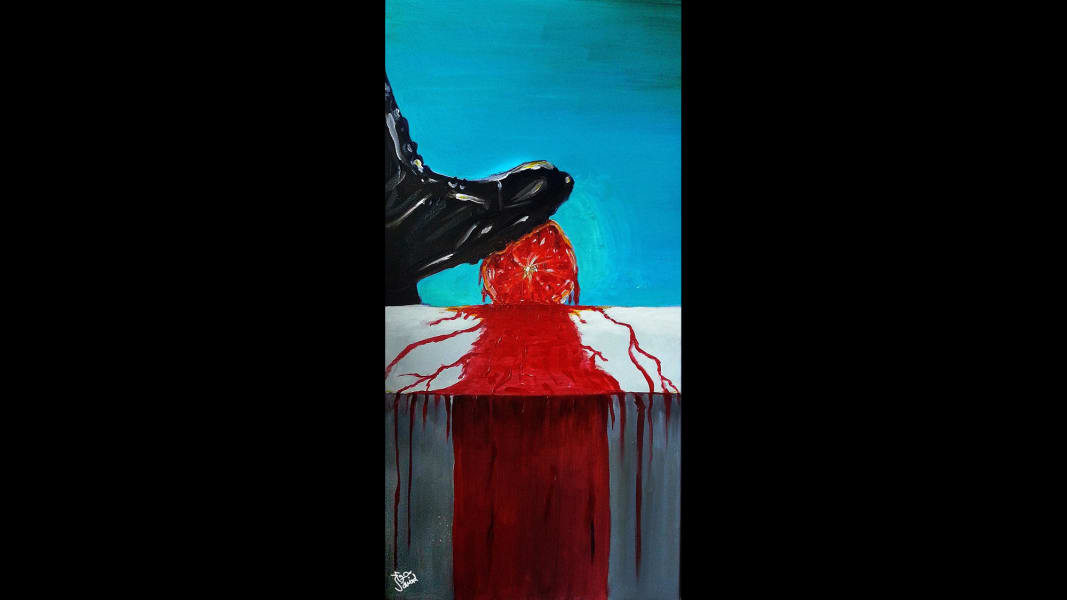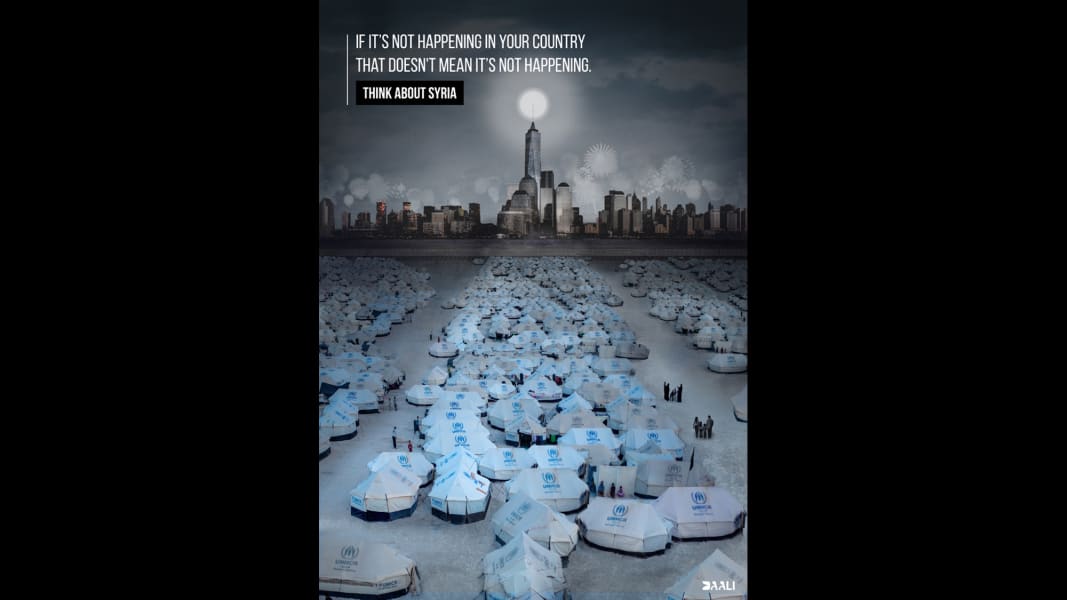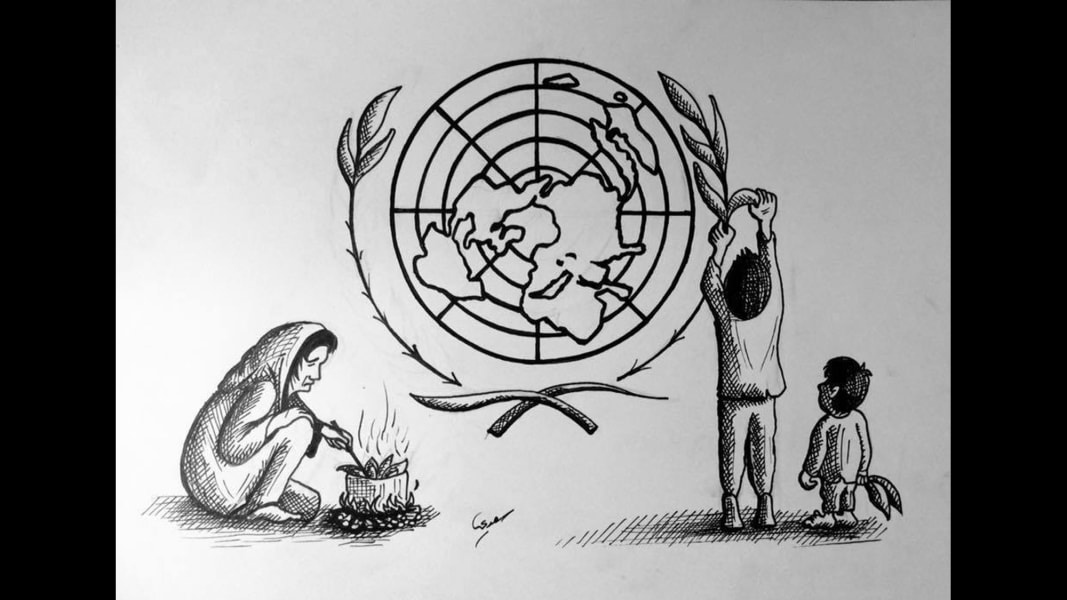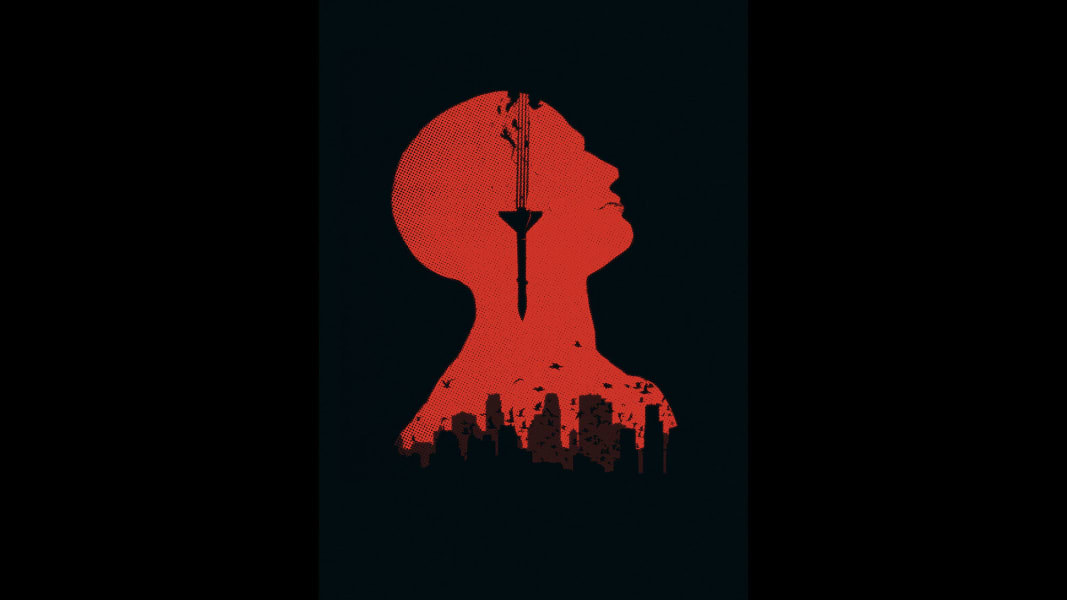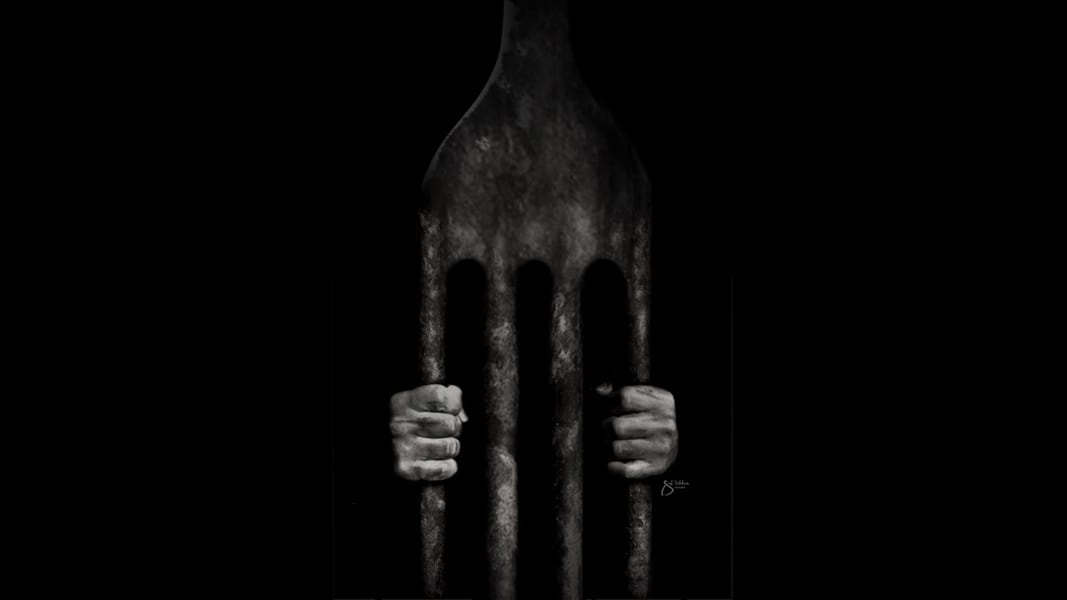World
Blueprints of war: Syrian artists paint the struggle
By Khushbu Shah, CNN
Updated 1809 GMT (0209 HKT) February 5, 2016
Share
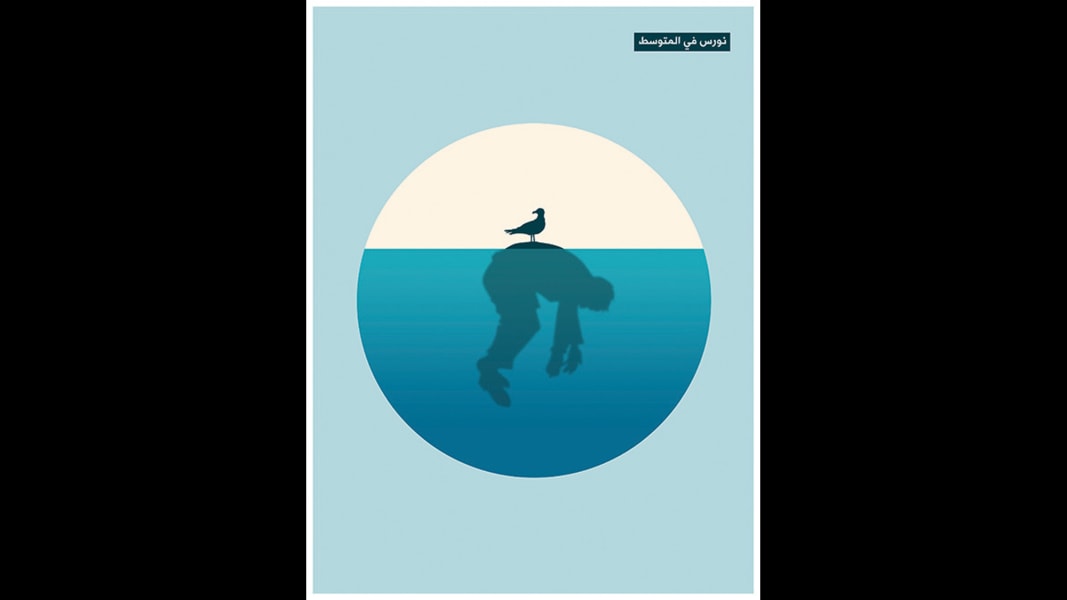

1 of 10
The posters by Fares Cachoux are simple and haunting. Though he was living abroad as the civil war broke out in his homeland, he wanted to show the world the stories coming out of Syria. His most recent poster reflects on what the International Organization for Migration says were nearly 1 million refugees who have attempted to cross the Mediterranean in 2015 for safer land. Half of these people are Syrian. "The sea graveyard for countless Syrians attempting to cross to escape DEATH. ... She awaits in the depths of the waves of the Mediterranean," the caption reads in French below the work he sent to CNN. courtesy Fares Cachoux
Cartoonist Hossam Alsaadi ran a coffee shop used as a haven by young Syrians who opposed their nation's regime at the start of the civil war. Now, those coffee shops are few and far between. The United Nations estimates more than 400,000 people in dozens of villages are under siege, many of them having to live off salt, water and grass to survive. Aid deliveries have become rare for those who cannot join the 11 million people who have had to abandon their homes. courtesy Hossam Alsaadi
Syrian artist Sedki Al Imam fled his hometown of Aleppo in 2012, eventually finding a home with his wife in Uppsala, Sweden. "It's heartbreaking," he says of the fighting between Syrian regime forces and rebel groups near Aleppo this week as peace talks were put on hold. The death toll rises as rockets, bombs and airstrikes pound already-beleaguered cities. courtesy Sedki Al Imam
An anonymous anti-war artist whose Facebook handle is DAALI has a series of works captioned, "If it's not happening in your country that doesn't mean it's not happening." Many of them reference scenes of oppression in from Syria transferred to a Western event or location. In this case, women wearing niqabs and gloves -- clothing forced onto them in ISIS-controlled areas -- march on a fashion runway. An ISIS flag hangs in the back. Since the emergence of the Islamic State in Iraq and Syria, reports of rape, slavery and extreme oppression have filtered out of the group's tightly controlled territory. ISIS also claims more than 100 female foreign recruits, the majority of them from Europe. courtesy Daali
The war has destroyed Aleppo, like other parts of Syria, artist Jawad says. It's now divided, with rebels controlling one side and the government the other. Barrel bombs pound the streets of a city that was once the most populated of the country. An estimated 300,000 civilians remain in rebel-held areas alone. Jawad says of this image: "Aleppo Citadel as I saw it in the midst of one of my nightmares. A once stunning, historical world-renowned structure is now sitting among utter destruction." courtesy Jawad
Raised in the Alawite stronghold of Latakia, Wajdi Saleh also spent time in Aleppo, where he traces his roots and went to university. Forced to flee to Turkey a few years ago, he still wants to focus on the effect of Syria's civil war on the people who have not left and cannot leave. Referring to the rebel-held town of Douma, he paints its name in blood, in Arabic, on a wall. The date refers to August 16, 2015, when more than 80 people were killed during multiple airstrikes by the regime. An activist told CNN at the time: "Dead human bodies were just left on the sidewalk." courtesy Wajdi Saleh
Designer Saif Aldeen Tahhan is one of the thousands of refugees who made a treacherous journey across the Mediterranean Sea to get to Europe. Now, safely in Denmark, he designs pieces about the situation at home in Syria, one of them reflecting on the recent news out of Madaya. The rebel-held Syrian town's plight grabbed the attention of the world early this year as images of starving children, women cooking grass, and emaciated residents populated news feeds from smuggled videos put out by activists. Aid deliveries were finally allowed into the town mid-January, but people are still starving. courtesy Saif Aldeen Tahhan
Sedki Al Imam in his own words: "As different media outlets have always portrayed a good and an evil side in the ongoing Syrian crisis, 'Kingdom of Hyenas' aims to draw a truer picture of the Syrian war. It depicts all fighting factions as monstrous creatures, mercilessly killing innocents, and stealing everything they lay their hands on. It also most importantly compares Syria to a jungle, where justice, morality, and dignity are unheard-of, and the powerful feed off the blood of the weak." courtesy Sedki Al Imam
Artist Jawad no longer lives in Syria, though he says he is "Syrian by kismet," having lived through the rise of President Bashar Al-Assad's rule prior to the demonstrations and subsequent civil war's beginning, in 2011. Like the majority of Syria, Syria's conscripted army was mostly Sunni Muslim. At the start of the war, opposition groups accused the regime of killing more than 1,300 Syrians in first three months of the war. The "military boot has become a despicable national icon in Syria," Jawad says. "It squeezes and steps on our last surviving blood orange, the Syrian people," he adds. courtesy Jawad
Anti-war anonymous artist DAALI focuses his work on Syria so the world does not ignore it just "because it is not happening in their countries, because the dead people are not their families, because the destroyed houses are not theirs, because the women raped are not their wives, simply because they are just not living there." More than 4.5 million Syrians have left their homes, the majority of them having fled to neighboring countries. Many live in tents or container homes with no running water and seldom access to electricity -- in stark contrast to their lives at home. Few have the chance to move into the cities and continue their lives. courtesy Daali
